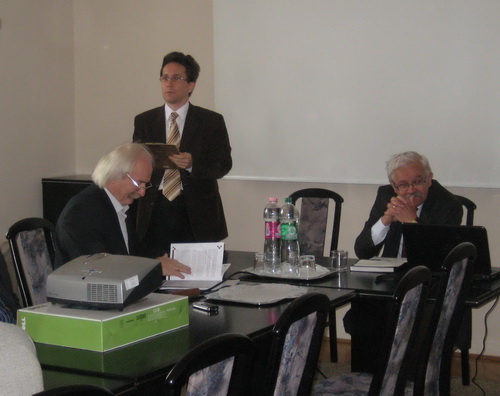05. 15. 2012.
The Age of Transition – The country of King János (Szapolyai). New trends and results in research
During the centuries of the Hungarian history there were two noble families who could rise to the throne: the Hunyadi and the Szapolyai family. Owing to the popularity of King Mátyás (Matthias), we know a lot about the first, but we have much less knowledge about the latter, especially compared to their historical importance. The historical significance of the Szapolyai family was provided by their outstanding wealth and political power. In the time of the Jagello (Jagiello) kings, the Szapolyai family could have an own court, politics and diplomacy. Their power was based on their unprecedented wealth (which included 8% of the total of serf allotments of the country) and a well organized institution of familiaritas (a kind of vassality of nobility).
This wealth was established by Imre, palatine at the height of his career (1486-87). His brother, István (also palatine, 1492–1499) in 1495 became the greatest landowner of the country. His wife was Hedvig, Princess of Teschen (Hedwig of Cieszyn) so his children were born with royal blood; Borbála married Zsigmond (Sigismund) I, King of Poland, and János became King János (John) of Hungary after the Battle of Mohács (1526). As a family with outstanding wealth and power, with own politics and diplomacy, their importance cannot be exaggerated. Getting to know the emergence of the family, their officials, their growing political significance, their manorial management and their relations can be especially helpful in understanding the internal political life before Mohács better.
The lectures and discussions of the conference dealt with the different – political, military, social, economic, international and ideological – aspects of the age and the history of the Szapolyai family.
Tibor Neumann clarified the origin and the relations of the Szapolyai family and described their way to the throne. Norbert C. Tóth examined János Szapolyai’s campaign of Wallachia in 1522, emphasizing its military and historical significance. István Kenyeres analyzed the manorial management and revenues of the family, and József Bessenyei overviewed their policy with the cities and trade. Teréz Oborni outlined the changes in the power propaganda of King János. Szabolcs Varga spoke about the power and influence of the Szapolyai family in Slavonia, and Richard Botlik about the relationship between King János (John) and England.







